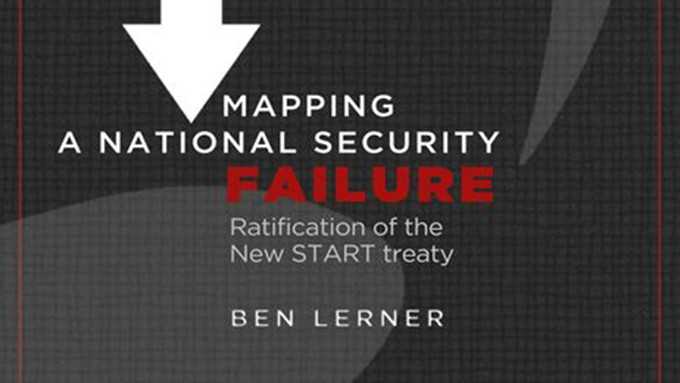Mapping a National Security Failure: Ratification of the New START Treaty

Article V of the treaty text contains the following specific prohibition with respect to missile defense:
Each Party shall not convert and shall not use ICBM launchers and SLBM launchers for placement of missile defense interceptors therein. Each Party further shall not convert and shall not use launchers of missile defense interceptors for placement of ICBMs and SLBMs therein. This provision shall not apply to ICBM launchers that were converted prior to signature of this Treaty for placement of missile defense interceptors therein.[90]
The Obama administration’s contention that New START did not restrict missile defense is plainly contested by the prohibitions outlined in Article V. As the New START Working Group points out, the Obama administration eventually revised previous claims that New START did not restrict missile defense, and instead modified their position in April 2010 to state that New START’s restrictions on missile defense were not burdensome, since the administration had no plans to use ICBM or SLBM launchers for the placement of missile defense interceptors—a position that ignored the possibility that future administrations might have different views on whether such options should be pursued.[91]
The treaty’s second textual prohibition on missile defense can be found in Article XV, which states that the parties are to use a mechanism known as the Bilateral Consultative Commission to reach agreement on any changes to the treaty’s Protocol “that do not affect substantive rights or obligations under this Treaty.”[92] Such procedures, the treaty notes, can be made without going through a formal treaty amendment process, which would involve separate ratification by both parties.[93]
New START skeptics argued that the Commission could in fact function as a significant constraint on missile defense, in ways that undermine the role of the Senate in the formulation of U.S. foreign policy. The Commission’s authority to change New START’s Protocol brings within its purview the Protocol’s “Definitions” and “Agreed Statements” sections, changes to which could have considerable implications for missile defense.[94] Professors Jack Goldsmith and Jeremy Rabkin asserted that despite the State Department’s assertion that the Commission would have no authority to affect missile defense because such questions would, in fact, “affect substantive rights or obligations” under New START, the treaty itself does not explain what constitutes a “substantive right”—a matter that the Commission itself would ultimately decide.[95] While, as Goldsmith and Rabkin point out, this kind of amendment process has been embedded in previous arms control agreements such as START I, New START constitutes a further expansion of international agreement-making authority to the executive branch, away from the Senate, and therefore a threat to the Senate’s advice-and-consent prerogatives.[96]
Despite the presence of these limitations within New START’s primary texts—which should have placed more skeptical Senators on firmer ground to support their concerns on missile defense—most of the missile defense debate that would ensue between the Obama administration and the Senate centered on the text of the New START’s preamble and the incompatible meanings that the United States and Russia were assigning to it. The portion addressing missile defense reads:
Recognizing the existence of the interrelationship between strategic offensive arms and strategic defensive arms, that this interrelationship will become more important as strategic nuclear arms are reduced, and that current strategic defensive arms to not undermine the viability and effectiveness of the strategic offensive arms of the Parties.[97]
- Trump’s Election Was a Win in the Fight to Keep Gitmo Open - January 4, 2017
- NDAA and the Counter-Drone Challenge - December 23, 2016
- NDAA Takes On Counter-Drone Challenge - December 8, 2016
